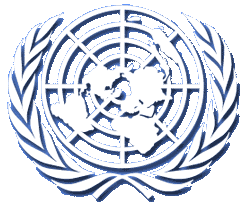DOCUMENTS and ANALYSIS
Excerpts from the Speech by
H.E Zine El Abidine Ben Ali, President of the Republic of Tunisia
at the opening session of the
First Phase of the World Summit on the Information Society (Geneva −
December 10, 2003)
This first
phase of our Summit will constitute an important starting point to
closely look into the ways and means whereby to stimulate
international and regional cooperation in order to reduce
inequalities between countries and peoples in the acquisition of
knowledge and in the mastery of modern digital technologies.
Excerpts from the address
by the President of the PrepCom,
H.E Adama Samassekou
to the official Opening
Ceremony of the WSIS
And
we did so while adhering to principles founded on the fundamental
values of inclusion, partnership and solidarity>,
in which regard, it gives me pleasure to hail the emergence
of an almost institutional partnership>
between civil society, through its International Bureau, the private
sector, through the Coordinating Committee of Business Interlocutors,
and governments, through the Bureau of the Summit Preparatory
Committee.
It is here, too, that the
tremendous scope of this new type of summit becomes evident, in terms
not only of the desire for integration on the part of all the key
players in the information society, of the participatory approach, of
the launching of new partnerships at the international
level and of the vision of global solidarity among peoples
and nations, but also, and above all, in terms of the political
aspiration to strengthen multilateralism in a new form.
Excerpts from the European Union
Position :
Preliminary
EU Views on the Preparatory Process for the Tunis Phase of the Summit
(http://www.itu.int/wsis/docs2/hammamet/contributions/eutext.pdf

The core focus of Phase II to be on the
implementation of the Plan of Action and follow-up including through
the promotion of partnerships between stakeholders;
5.2 The EU supports the organisation of
thematic conferences involving or organised by governments, the
private sector, civil society, academia and appropriate international
and intergovernmental organisations.
The EU will also consider thematic
meetings on issues of greatest concern to it.
The EU believes it important that issues
such as human rights, enabling environment, security, gender issues,
public-private partnerships and the regulatory framework be
adequately reflected in the preparatory process, including in
possible thematic meetings.
6. EU approach to a political document
for Phase II and related political issues
6.1 The outcome of the Tunis Summit
should be a political document, to be adopted by HOSGs. It should be
a single and concise document and could consist of two parts:
a political preamble reaffirming the
commitment to the implementation to DoP and PoA and an operative
part, which could include issues relating to the implementation
of the PoA, preparation of national e-strategies, performance
evaluation and benchmarking, national reporting, follow-up on an
integrated and coordinated approach in the UN system and
public-private partnership mechanisms.
6.2 The document should also
acknowledge, record and, if considered appropriate,
endorse the work and contribution to
WSIS of the Task Force on Financing Mechanisms
7.4 The EU, at EC and individual Member
States' level, is one of the most significant external
donors/investors in ICTs in developing countries, consistent with its
commitment to the Monterrey Consensus.
The EU will engage in more concerted
dialogue with its partners and other stakeholders in the WSIS process
on the EU's contributions and on further possibilities to jointly
promote Information Society for development. The EU is yet to be
convinced as to the need for the creation of a separate Digital
Solidarity Fund.
Excerpts from the Swiss Position :
Swiss Non-Paper on the structure and
focus of the second phase of the World Summit on the Information
Society
http://www.itu.int/wsis/docs2/pc1/contributions/switzerland.pdf

The second phase should reinforce the
spirit of partnership and collaboration between the different
stakeholders established during the first phase and it should
present some first examples of the utility and efficiency of a
multistakeholder approach. Multi-stakeholder partnerships
should be associated as a separate category, given their demonstrated
importance in the first phase.
It should create appropriate
platforms for the creation of new implementation partnerships and
joint initiatives. Ideally, such platforms should already be
offered during the preparatory process so that Tunis would witness
the launching of additional implementation efforts.
Heads of State and Government, but also
leaders of private sector and civil society could come together in
Tunis to announce projects and partnerships initiated after Geneva
2003 and to discuss and review first results in implementing the
Action Plan.
The role of multistakeholder
partnerships will be enhanced as key policy and implementation
arrangement.
Excerpts
from the United States position
We are committed to working in close
partnership with all stakeholders to "take stock" of
existing programs and to implement the common vision of the
future set out in the WSIS Declaration of Principles and Plan of
Action.
Excerpts from the position of El
Salvador :
http://www.itu.int/wsis/docs2/pc1/contributions/elsalvador.pdf

It is necessary that all stakeholders
offer viable ways and partnerships to realize all the actions
agreed in Geneva, and to reflect them in appropriate documents.
Analysis
Already in December, Tunisia highlighted
the importance of developing new channels through which to incite
partnerships between local and national parties from the earliest
stage of the second phase of WSIS. His Excellency Adama Samassekou
emphasized the need for a new political will specifically aimed at
reinforcing "new forms of multilateral agreements." Several
States also indicated their desire to see the development of such new
methods. The structure of multi-stakeholder partnerships is obviously
of prime importance to the European Union and the EU has even
proposed a thematic event focused on this particular topic.
Switzerland contributes to this evolutionnary trend by suggesting
several concrete steps. The Swiss position is particularly relevant
given the Helvetic Confederation's broad experience as host of the
WSIS First Phase as well as hosting many prestigious international
organizations.
The major problem, both conceptually and
practically, is that currently there are no legal structures which
can provide frameworks
flexible enough to accommodate multi-stakeholder partnerships, and to
empower them under international law. Hence, the main challenge
resides in defining new practical legal frameworks that foster
multi-stakeholder partnerships.
|



